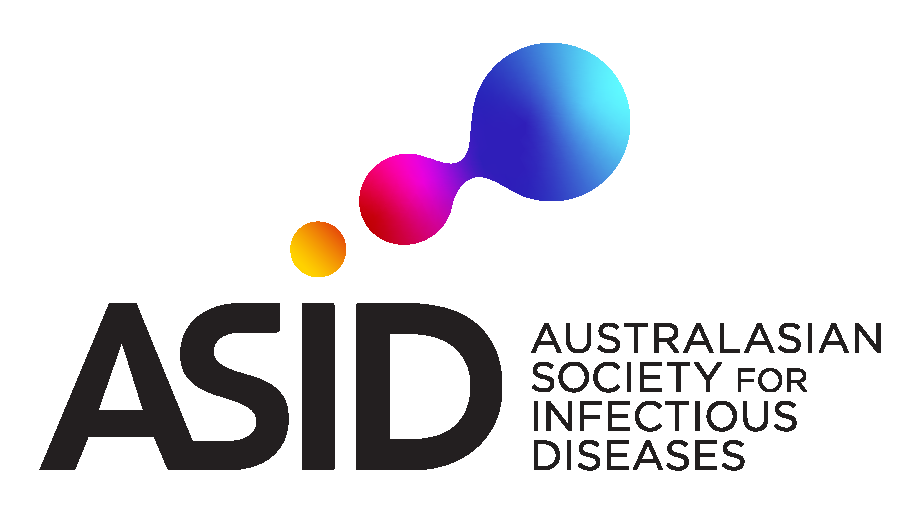ANZPID: A big group passionate about little people
At the end of last year, paediatricians and clinicians welcomed the release of the 3rd edition of the ASID-ANZPID Management of Perinatal Infections guideline. Frequently used in the care of children, it provides useful algorithms for the maternal and neonatal management of perinatal infections.
This is just one of the landmark guidelines developed by a group of Australian and New Zealand paediatricians, paediatric and adult infectious diseases physicians, microbiologists and trainees who are passionate about all things child health. The Australian and New Zealand Paediatric Infectious Diseases (ANZPID) Special Interest Group of the Australasian Society for Infectious Diseases (ASID) is a relatively young group, formed fourteen years ago in 2009. Since then, it has increased in size (249 members) and capacity and is a thriving community. A cornerstone of ANZPID’s work is education in infection prevention and management of infections in children.
The educational activities include an annual clinical meeting where there is exchange of great learning cases, teaching on the run and with dinners shared with colleagues and friends. The ANZPID symposia at the ASID Annual Scientific Meeting has grown considerably over the past decade with many elements of the meeting inclusive of paediatric infectious diseases topics and speakers.
The online monthly ANZPID Journal club (1) (see Publications on the ASID website) started in 2011 and was one of the first online journal clubs of its time. The committee provides oversight to the journal club which now incorporates quiz questions and collaborative submissions with international paediatric infectious diseases societies including the European Society of Paediatric Infectious Diseases (ESPID) and the American Paediatric Infectious Diseases Society (PIDS). Other features of ANZPID’s educational initiatives include speakers on a variety of paediatric topics in the ASID Intrepid series.
ANZPID has made significant collaborative contributions to the ASID Clinical Research Network to promote the need for paediatric multi-centre, high quality research. The group have led multiple publications on a variety of priority topics including HIV exposure in infants, bone and joint infections and invasive Staphylococcus aureus infections in children. There are currently 7 multi-centre studies underway, including some which are shared with our colleagues working in adult infectious diseases.
As a community, ANZPID members are highly active in clinical research, embracing novel methodologies (platform trial on Staph aureus blood stream infections: SNAP) and interventions (phage therapy to treat problematic infections: STAMP); as well as challenging dogma with evidence (treating bone and joint infections in children with oral antibiotics only: BEST).
ANZPID has harnessed its collective voice to advocate on key issues in child health and infectious diseases including vaccinations in children and congenital syphilis. The group also ensures a paediatric lens is provided on national policies, guidelines and funding opportunities and provides representation on numerous national and international professional committees.
As well as the ASID-ANZPID Management of Perinatal Infections guideline (see Publications on the ASID website) the group published a systematic review and guidelines on antibiotic duration and timing of IV to oral switch for 36 bacterial infections in children in the Lancet infectious diseases with a useful summary guideline table.
Reference 1.Bowen AC, Connell TG, Bryant PA. Evaluating a web based paediatric infectious diseases journal club: more than just critical appraisal? BMC Med Educ 2014; 14: 242.
ASID-ANZPID invites anyone with an interest in paediatric infectious diseases and those providing care to children to join us. Together we are a united force committed to improving infection management and prevention for children in Australia, New Zealand and abroad.
See: https://asid.net.au/special-interest-groups
ANZPID Committee Members: Dr Brendan McMullan (Chair), Dr Anita Campbell (Deputy Chair), Dr Phoebe Williams (WSPID member), Dr Linny Phuong (WSPID member), Dr Nan Vasilunas, Dr Archana Koirala, Dr Rachel Webb, Michelle Mahony (Trainee representative), Dr Ameneh Khatami (ASID clinical research network member).
This article first appeared in the Australian Society for Antimicrobials (ASA) newsletter Number 41 (July 2023).

